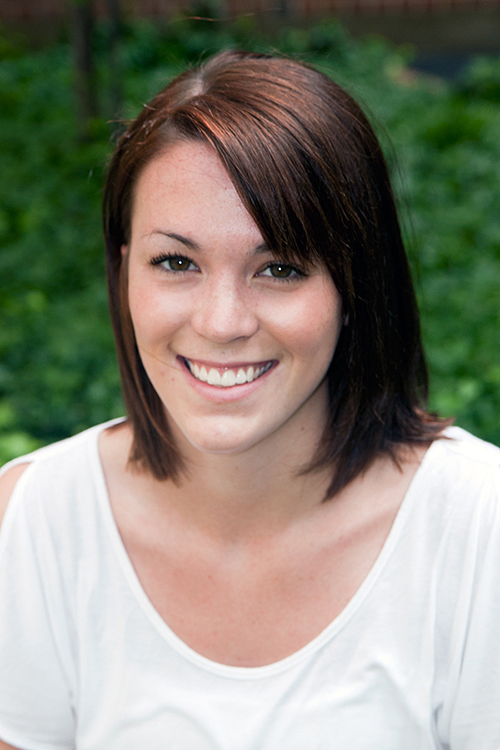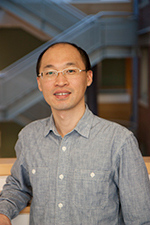Cell and Developmental Biology awards for outstanding research achievements by graduate students and postdoctoral fellows are given in recognition of outstanding research achievements by a graduate student or postdoctoral fellow. This year's recipients are Emily Poulin (Coffey Lab), Graduate Student of the Year, and Yongliang Huo (Macara Lab) Post Doc of the Year.

Emily Poulin
|
Five papers on a variety of related projects and one more in preparation demonstrate Emily's versatility and her ability to work well as a team member:
From her mentor, Bob Coffey: From her thesis committee Chair, Chris Wright: Emily has already moved to Boston, so accepting this award for her is her former lab mate and friend, Alina Starchenko. |

Yongliang Huo
|
This year’s CDB postdoc of the year award goes to Dr. Yongliang Huo from Dr. Ian Macara’s lab. Yongliang won the award, in part, for his work on Par3L, a Par3-like protein that is required for mammary stem cell maintenance. Yongliang showed that Par3L binds to the tumor suppressor protein, LKB1, to inhibit its kinase activity and that this inhibition is required for mammary stem cell maintenance. Yongliang’s work was published in the journal Nature Cell Biology and was featured on its cover. Significantly, there were only two authors on the paper – Drs. Huo and Macara. The annual CDB postdoc award is awarded principally for the quality of scientific accomplishments of the candidate at the time of nomination. The selection committee also takes in consideration the applicant’s potential for a successful career in science. Towards this end, Yongliang has written and received a Department of Defense grant that has funded his work in Dr. Macara’s lab, thereby demonstrating his ability to obtain external support. In addition, Yongliang has recently performed a novel in vivo screen, which he conceived, in primary mammary cells to identify new tumor suppressor genes. He has been successful in this endeavor, and a manuscript describing the characterization of one of the genes identified in this screen has been recently submitted to a peer-reviewed journal. Several more candidate genes await to be characterized. This innovative screen for tumor suppressors that Yongliang developed has clearly opened the door for new avenues of investigation for his future work. We believe Yongliang’s future as a scientist is bright! |